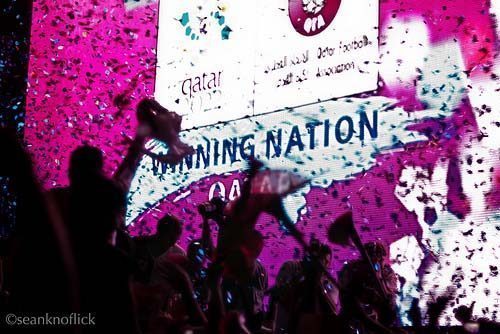
An alcohol ban on the Pearl. The introduction of pork for sale at QDC. The renaming of the state mosque after the founder of Wahhabism. Agreeing to send female athletes to the Olympics for the first time.
Over the year, Qatar has been caught in a fierce tug-of-war between members of its conservative population and those in government who seek to establish the country as a world leader in politics, business and sports.
But it is this latter category that could spark change in the country’s backyard, asserts James Dorsey, a senior fellow at the S. Rajaratnam School of International Studies at Nanyang Technological University in Singapore.
In a recent analysis piece, Dorsey argues that Qatar bid for the World Cup for three reasons: To position itself as global player; to leverage its wealth for projects that would help reduce its reliance on natural gas; and to enhance its security by building ties with friends and foes alike.
…Forcing Qatar to become the first wealthy Gulf state dependent on expatriate labour to significantly improve working conditions and the legal environment of expatriate workers in line with international standards…
In a part of the world where sports and particularly soccer are often a battlefield for political, ethnic, religious and gender rights, Qatar’s successful bid for the 2022 World Cup has sparked a growing push towards professionalization, commercialization and the creation of a proper football industry as a key to unlocking economic opportunity…
“Something is moving,” says Santino Saguto, an Italian soccer management consultant based in Dubai.
What do you think? Is something moving? Or will the tug-of-war continue all the way to 2022?
Credit: Photo by Sean Knoflick
